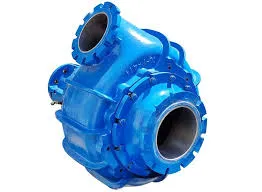English
- Afrikaans
- Albanian
- Amharic
- Arabic
- Armenian
- Azerbaijani
- Basque
- Belarusian
- Bengali
- Bosnian
- Bulgarian
- Catalan
- Cebuano
- Corsican
- Croatian
- Czech
- Danish
- Dutch
- English
- Esperanto
- Estonian
- Finnish
- French
- Frisian
- Galician
- Georgian
- German
- Greek
- Gujarati
- Haitian Creole
- hausa
- hawaiian
- Hebrew
- Hindi
- Miao
- Hungarian
- Icelandic
- igbo
- Indonesian
- irish
- Italian
- Japanese
- Javanese
- Kannada
- kazakh
- Khmer
- Rwandese
- Korean
- Kurdish
- Kyrgyz
- Lao
- Latin
- Latvian
- Lithuanian
- Luxembourgish
- Macedonian
- Malgashi
- Malay
- Malayalam
- Maltese
- Maori
- Marathi
- Mongolian
- Myanmar
- Nepali
- Norwegian
- Norwegian
- Occitan
- Pashto
- Persian
- Polish
- Portuguese
- Punjabi
- Romanian
- Russian
- Samoan
- Scottish Gaelic
- Serbian
- Sesotho
- Shona
- Sindhi
- Sinhala
- Slovak
- Slovenian
- Somali
- Spanish
- Sundanese
- Swahili
- Swedish
- Tagalog
- Tajik
- Tamil
- Tatar
- Telugu
- Thai
- Turkish
- Turkmen
- Ukrainian
- Urdu
- Uighur
- Uzbek
- Vietnamese
- Welsh
- Bantu
- Yiddish
- Yoruba
- Zulu
Telephone: +86 13120555503
Email: frank@cypump.com
Oct . 15, 2024 21:51 Back to list
Electric Water Pump for Clean Water Solutions and Sustainable Living
The Importance of Clean Water Pumps and Electric Systems
Access to clean water is a fundamental necessity for human survival and development. Around the globe, millions of people lack reliable sources of safe drinking water, which leads to serious health risks, economic challenges, and social issues. An effective solution to this problem lies in the implementation and use of clean water pumps powered by electricity. This article discusses the significance of these systems, their benefits, and how they can improve water access for communities.
The Role of Clean Water Pumps
Clean water pumps serve as the backbone of water supply systems in both urban and rural settings. These machines are designed to transport water from its source—such as wells, rivers, or reservoirs—into storage tanks or directly to consumers. Water pumps come in various types, including submersible pumps, centrifugal pumps, and positive displacement pumps, each suited for different applications. The primary goal of these pumps is to ensure that clean water is accessible to all, thereby promoting better health and hygiene.
The Power of Electric Systems
Electricity plays a crucial role in enhancing the effectiveness of clean water pumps. Unlike manual systems, electric pumps operate with higher efficiency, allowing for faster water extraction and distribution. They require less physical labor, which means that communities can rely on them to deliver water consistently without straining their resources. Furthermore, electric pumps can be integrated with smart technology, enabling remote monitoring and control, which provides operators with real-time data on water levels, pump performance, and maintenance needs.
Health and Economic Benefits
clean water pump and electric

The combination of clean water pumps and electric power significantly impacts public health. With reliable access to clean water, the prevalence of waterborne diseases decreases. Communities can enjoy improved sanitary conditions, leading to healthier populations and reduced healthcare costs. Moreover, access to clean water can enhance educational outcomes; children often spend hours collecting water, which can interfere with their school attendance. By providing a reliable water source through clean water pumps, families can allocate more time to education and economic activities.
Economically, clean water access is a catalyst for development. Businesses require water for various needs, including agricultural irrigation, food processing, and manufacturing. When clean water is readily available, it can foster local enterprises, improve productivity, and ultimately boost the economy. Investing in clean water systems and electric pumps creates jobs, not only in installation and maintenance but also in water distribution and management.
Sustainable Practices
The integration of renewable energy sources such as solar or wind power with electric water pumps presents an opportunity for sustainable development. Solar-powered pumps, for example, can operate in remote areas where electricity is not available. This innovation can bring clean water to underserved communities without reliance on fossil fuels, making it a sustainable and environmentally friendly solution.
Conclusion
In conclusion, clean water pumps combined with electric power represent a transformative solution to the global water crisis. Their impacts on public health, economic growth, and environmental sustainability underscore the need for continued investment in these technologies. As we advance, it is essential for governments, NGOs, and private sectors to collaborate and promote the development and implementation of clean water pump systems. By ensuring that every individual has access to clean water, we pave the way for healthier communities, responsible economic development, and a sustainable future for generations to come. The journey toward universal clean water access is challenging, but with innovative technologies and a commitment to improvement, it is an achievable goal.
-
Horizontal Split Case Pump with GPT-4 Turbo | High Efficiency
NewsAug.01,2025
-
ISG Series Pipeline Pump - Chi Yuan Pumps | High Efficiency, Durable Design
NewsAug.01,2025
-
Advanced Flue Gas Desulfurization Pump with GPT-4 Turbo | Durable & Efficient
NewsJul.31,2025
-
ISG Series Vertical Pipeline Pump - Chi Yuan Pumps | Advanced Hydraulic Design&Durable Construction
NewsJul.31,2025
-
ISG Series Vertical Pipeline Pump - Chi Yuan Pumps | Energy Efficient & Low Noise
NewsJul.31,2025
-
pipeline pump - Chi Yuan Pumps Co., LTD.|High Efficiency&Low Noise
NewsJul.31,2025










